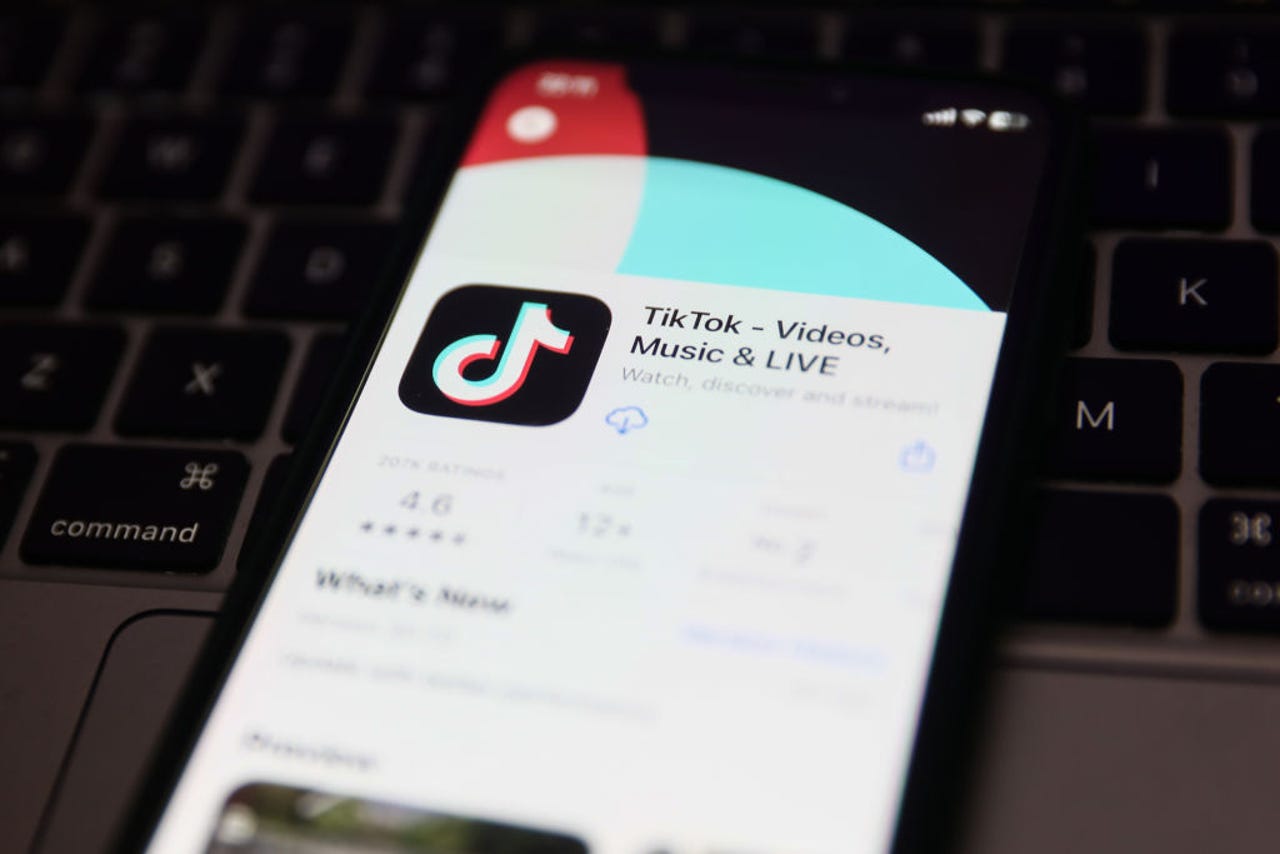'ZDNET Recommends': What exactly does it mean?
ZDNET's recommendations are based on many hours of testing, research, and comparison shopping. We gather data from the best available sources, including vendor and retailer listings as well as other relevant and independent reviews sites. And we pore over customer reviews to find out what matters to real people who already own and use the products and services we’re assessing.
When you click through from our site to a retailer and buy a product or service, we may earn affiliate commissions. This helps support our work, but does not affect what we cover or how, and it does not affect the price you pay. Neither ZDNET nor the author are compensated for these independent reviews. Indeed, we follow strict guidelines that ensure our editorial content is never influenced by advertisers.
ZDNET's editorial team writes on behalf of you, our reader. Our goal is to deliver the most accurate information and the most knowledgeable advice possible in order to help you make smarter buying decisions on tech gear and a wide array of products and services. Our editors thoroughly review and fact-check every article to ensure that our content meets the highest standards. If we have made an error or published misleading information, we will correct or clarify the article. If you see inaccuracies in our content, please report the mistake via this form.
TikTok bans explained: Everything you need to know


The US has had a rocky relationship with TikTok and its Beijing-based parent company ByteDance.
In 2020, former president Donald Trump proposed ByteDance sell parts of its company to Microsoft. If an American company controlled TikTok, it was presumed the app would be less of a security concern for the US and other countries.
Also: What is Lemon8 and why is it so popular on TikTok?
By late last year, the US Congress approved a motion to ban TikTok on all federal government-issued devices. In March this year, President Joe Biden's White House ordered all federal employees to remove the app from their devices within 30 days. A day later, the European Parliament ordered members from all three of its institutions to delete the app from government devices -- and urged members to delete it from their personal devices, too.
More than half of US states have also banned or partially banned TikTok from state-issued government devices. In some states, the governors are eager to propose a nationwide ban on the app. Some public, state-funded universities have also banned the app from being used on university networks.
Also: How to go live on TikTok
Montana became the first US state to ban TikTok on all personal devices, threatening to heavily fine Apple and Google if they keep TikTok available to download in their app marketplaces.
Here's why those bans are being enforced.
Which countries have banned TikTok on federal devices?
These are the countries that have banned TikTok because they believe the app poses a national security threat. There are other countries that banned the app years ago, but they cite shielding citizens from viewing inappropriate content as their reason for the ban.
- Taiwan.
- The US and more than half of its state governments.
- Canada and its provinces.
- The European Union's governing bodies.
- Belgium.
- Denmark.
- New Zealand.
- The UK.
- Australia.
Which US states have banned TikTok?
For now, Montana is the only US state to sign legislation into law that would ban TikTok on all personal devices in the state. But many public universities and university systems in the US have banned TikTok from operation on campus Wi-Fi and university-owned devices.
Also: Want to create better TikToks and Reels? You need one of these ring lights
New York state was the first state to ban TikTok on government devices in 2020, according to an internal memo.
Florida Governor Ron DeSantis signed a bill into law that will prohibit personal devices from accessing TikTok on K-12 public schools' Wi-Fi networks.
It's unclear if any states are gearing up to follow Montana's lead and ban TikTok on every personal device within their state.
Why are some governments banning TikTok?
Each government organization that has banned TikTok from devices has cited security concerns. Each country's primary concern is that the Chinese government could order ByteDance to hand over the data it collects about its users. Western governments are adamant that if the Chinese government could access user data, security interests would be exposed.
Also: Former ByteDance exec says China can access TikTok user data
In TikTok's privacy policy, it states that when you create an account, upload content, or interact with the platform in any way, TikTok can and will collect the following:
- Any account and profile information (name, age, username, phone number, profile image, email, and password).
- Any user-generated content uploaded to the app (audio recording, photos, comments, and videos).
- Direct messages.
- Any information used to purchase something through the app (card numbers, names, information from third-party payment apps, billing, and shipping address).
- Your contacts.
- Your IP address, time zone, device IDs, network type, and your device model.
- Your approximate location and, with your permission, your precise location.
According to a study from The Georgia Institute of Technology's Internet Governance Project, TikTok's data harvesting is consistent with social-networking industry norms. However, TikTok's possible ties to the Chinese government make it a concern.
Although TikTok's data-gathering techniques are common, if the data collected about US users falls into the wrong hands, it's enough information to sufficiently study their digital footprints.
The US government also can and has accessed user data from U.S.-based tech companies such as Google, Meta, Microsoft, and Apple. However, US tech companies can reject or push back on government requests to access user data. To operate in China, Chinese tech companies must always turn over data to the government when requested.
Also: The US government buys your data. Here's why
Some governments are worried about the geopolitical consequences if the Chinese government accessed this much Western user data. It can be especially concerning if government officials with clearance to sensitive and classified information give away their personal data -- and that's why the ban on federal government-issued devices is being enforced.
Why is there legislation to ban TikTok?
To effectively ban TikTok in the US, President Biden will need lawmakers to rewrite the legal framework around banning foreign technological applications and software. When former President Trump tried to ban TikTok in late 2020, multiple federal judges said he illegally exercised his legal powers.
Also: 5 simple ways to stop spending so much time on your phone
To avoid legal blocks by federal courts, the US House and Senate will need to pass the RESTRICT Act and the DATA Act.
What happened during TikTok's CEO's testimony?
The Biden administration is calling for TikTok's Chinese owners to divest their stakes in the app or risk a ban in the US. Earlier this year, during his testimony in front of the US Congress, TikTok's CEO Shou Zi Chew said a divesture wouldn't entirely satisfy concerns about national security.
As a result of Chew's testimony, more members of Congress supported two bipartisan bills that would give the president legal clearance to ban TikTok in the US.
But Chew mentioned a last-ditch effort to convince US lawmakers that TikTok is not a national security risk. TikTok is spending $1.5 billion on Project Texas, an initiative to create a committee based in the US made up of US government-approved members to oversee, store, and monitor US TikTok user data.
Project Texas would relocate all US TikTok user data onto US soil, ensuring that the data never makes contact with Chinese servers. The initiative would also employ Oracle, a US-based SaaS company, to oversee US TikTok user data. But for many lawmakers and political pundits, this corporate restructuring is not enough to sway their opinion.
Also: These are the best Twitter alternatives
According to a wrongful termination lawsuit filed by former ByteDance executive, Yintao "Roger" Yu, the Chinese government can and has accessed TikTok's user data. Yu alleges that despite Project Texas moving US user data to the States, the Chinese government will continue to access it through a backdoor portal.
Yu's claims in his lawsuit are not substantiated by internal memos or messages, but they will give lawmakers more reason to exercise caution.
What does TikTok have to say about the bans?
Following each government ban, TikTok has claimed the bans are unfounded, unfair, and implemented without evidence that the app poses a security concern.
TikTok maintains that the Chinese government cannot and has not accessed US user data collected by TikTok. Earlier this year, TikTok CEO Shou Zi Chew testified in front of Congress and proposed a compromise that would deter the government from banning TikTok in the US.
Also: These experts are racing to protect AI from hackers
The compromise is called Project Texas, and it would transfer all US user data from TikTok's servers to a company called Oracle. Oracle has contracts with the US government and provides cloud computing services to the US government.
In theory, Project Texas would quell government officials' security concerns since Oracle is a US-based company with a strong relationship with the government.
However, not much information is available about Project Texas' progress, and Bloomberg reported that the initiative has been in limbo for several months.